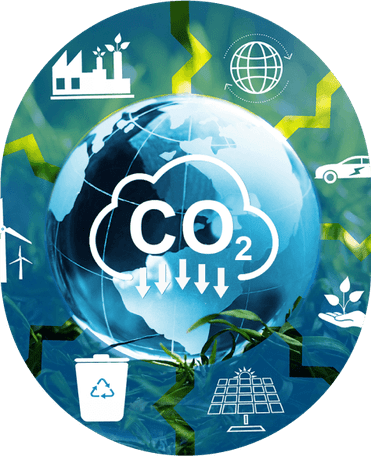Download the report
Legal Disclaimer
© 2023. Delta Air Lines, Inc.



EnVIRONMENT
Net-Zero by 2050
We remain steadfast in our aspirations to address climate change and are well-positioned to accelerate our decarbonization work in the coming years. We have made progress on our near-term milestones toward achieving net-zero and our other climate goals by 2050, bolstered by our intention to invest $1 billion through the end of 2030.
We believe that nobody better connects the world than Delta. Our mission to do so in a sustainable manner is as essential to the success of our business as it is to the health of our environment and the people within it. In 2021 we set out to achieve net-zero greenhouse gas emissions for our airline operations and its value chain (Scopes 1, 2 and 3) by 2050, and we joined the United Nations Race to Zero – Business Ambition for 1.5°C campaign as set forth in the Paris Climate Agreement.
In 2022 we received SBTi validation of Delta’s medium-term emissions reduction target, a significant milestone on our sustainability journey which establishes a strong foundational plan to guide our path towards 2050. Our long-term 2050 target along with our glide path to net-zero is still pending SBTi approval. In February 2023, SBTi issued a technical report detailing an interim pathway for aviation companies to set 1.5°C-aligned targets and announced plans to launch a formal update to target-setting guidance for the aviation sector consistent with limiting warming to 1.5°C. Given the rapidly evolving landscape, Delta plans to monitor further SBTi guidance, working with our counterparts and A4A to align as an industry on a unified approach that commits to ambitious targets, which will drive meaningful change.
Improving Emissions Intensity
In July 2022, SBTi approved our medium-term goal to reduce well-to-wake Scopes 1 and 3 jet fuel greenhouse gas emissions by 45% per revenue ton kilometer by 2035 from a 2019 base year.1 This approval indicates that our Scope 1 and 3 target ambitions align with the Paris Agreement’s goal of limiting global warming to well below 2.0°C above pre-industrial levels. In 2022 carbon emissions intensity improved 0.56% compared to 2019 on a revenue ton kilometer basis. From 2021 to 2022 emissions intensity improved 12.7%.2
1 Non-CO2e effects which may also contribute to aviation-induced warming are not included in this target. Delta commits to report publicly on its collaboration with stakeholders to improve understanding of opportunities to mitigate the non-CO2e impacts of aviation annually over its target timeframe.
2 Carbon emissions intensity was materially impacted in 2020 and 2021 by lower passenger loads and other factors during the COVID - 19 pandemic and Delta’s middle seat blocking measures through April 30, 2021.
Our ability to achieve our ambitious climate goals depends on a combination of science, technology, innovation, government policy and partnerships. Achievement will require, among other things, significant capital investment (including from third parties), research and development from manufacturers and other stakeholders and progression of government policies and incentives. These actions are critical to reduce the cost and increase production of SAF and other technologies that are not presently in existence or available at scale.
We need technology enhancements to reach our goal of net-zero emissions by 2050. To promote progress, we launched the Delta Sustainable Skies Lab, a first-of-its-kind airline innovation lab to accelerate research, design and testing for a more sustainable future of air travel. The Lab serves as a platform to advance internal collaboration and innovative partnerships. Additionally, in the future, the Lab will include an Engagement Studio intended to showcase Delta’s evolving sustainability efforts in a single place.
In this section, we provide a high-level overview of our science-based targets, the key elements of our anticipated decarbonization pathway, our progress toward our existing goals and climate risks and opportunities based on our climate scenario analysis.








